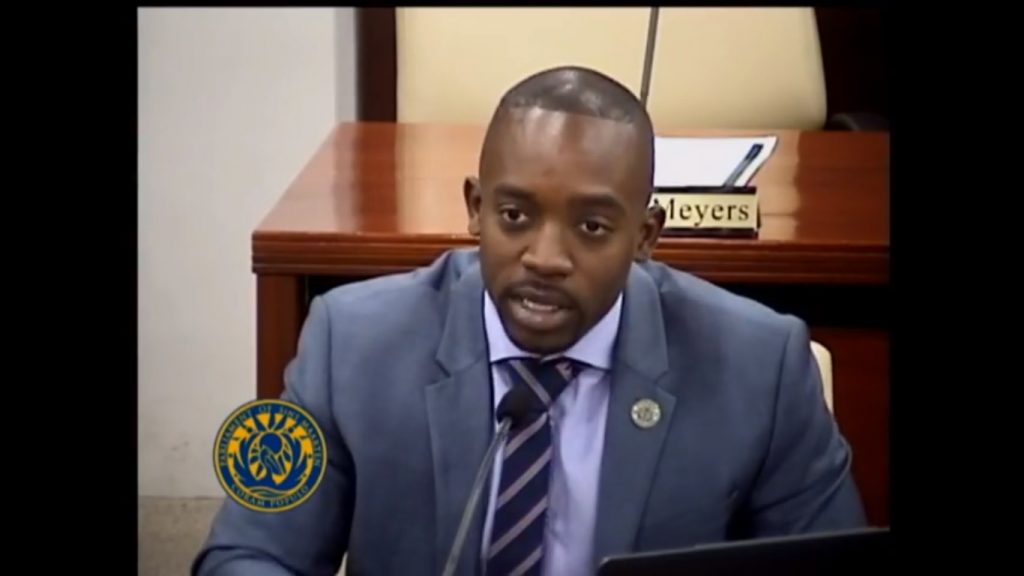Lofty words but hardly any deadlines in policy plan for 2022

PHILIPSBURG — The draft 2022 budget closes with a deficit of 124.1 million guilders ($69.3). No surprises there. Revenue is projected to be 409.3 million ($228.7 million) and expenditures 533.5 million ($298 million). More interesting than these numbers is the question: what is the government going to achieve under such dire financial stress?
The answers ought to be in the policy plan for 2022 that is an integral part of the budget. Finance Minister Ardwell Irion writes in his elucidation that, given the deficit, it is important to increase revenue and to lower expenditures. The measures contained in the country package see to quite some of such measures, but Irion notes that the effect in 2022 will be small because of the time it will take to implement these measures.
The policy plan opens with a lofty reference to the National Development Vision 2030: “Turn St. Maarten into a compassionate, strong and decisive country that will be economically resilient and that will be able to support its own development and to offer an improved quality of life and wellbeing for future generations.”
The policy plan is full of ideas and initiatives, but the only one that mentions some sort of deadline can be found in Irion’s chapter about his ministry. “Restructuring (of the tax inspectorate) must make sure within three years that citizens and companies will be prepared or forced to abide by their legal obligations regarding the community of which they are a part.”
Otherwise, the plan quite often speaks of “aiming for better” (for instance a better cooperation between the ministries) and it uses terms like “to set priorities”, “completing (parking and towing policy), and “being progressive” (Ministry of Public Health); hardly any deadlines anywhere.
The Ministry of Finance mentions a couple of concrete actions though some of them will raise eyebrows, like this one: “The advice for tax reform, including some adjustments from the International Monetary fund, approved by the Council of Ministers in 2015, is ready.”
This proposal will be presented to parliament in 2022 and it will be implemented after 2022.
Irion also reports that introducing a VAT-system is “not the desired solution” because of the relationship with the French side of the island and vulnerability to fraud.
The ministry also plans to hire a public relations expert “to inform citizen about their rights and duties with regard to tax legislation.”
Prime Minister Silveria Jacobs’ Ministry of General Affairs chapter contains a headline that reads “Environment and less Climate Change.” But this section does not mention one single word about climate change. Instead, it speaks of “achieving community wellbeing” and about the establishment of a Disaster Risk Management Fund; not to protect the population, but to repair damages to the government organization after a disaster.
The ministry also aims to enable “all civil servants to improve their productivity; including working from home.”
The ministry of Justice also produces an incomprehensible sentence when it speaks about the qualifications of its staff. “Making sure that the immigration policy enables hiring qualified local workers, while this was not available locally.”
The Ministry of Public Health, Social Development and Labor want to protect the rights of employees and the local labor market while at the same time it wants to make the labor laws more flexible.
Other goals for this ministry are the increase of pension payments and the development and implementation of National Health Insurance.
The ministry of Tourism and Economic Affairs intends to take an old plan off the shelf by establishing a plan of approach for the establishment of the St. Maarten Tourism Authority by January 2023. It is unclear whether this deadline refers to the plan of approach or to the establishment of the tourism authority.
In early 2022, the ministry intends to research the effectiveness of a maximum-price system.























